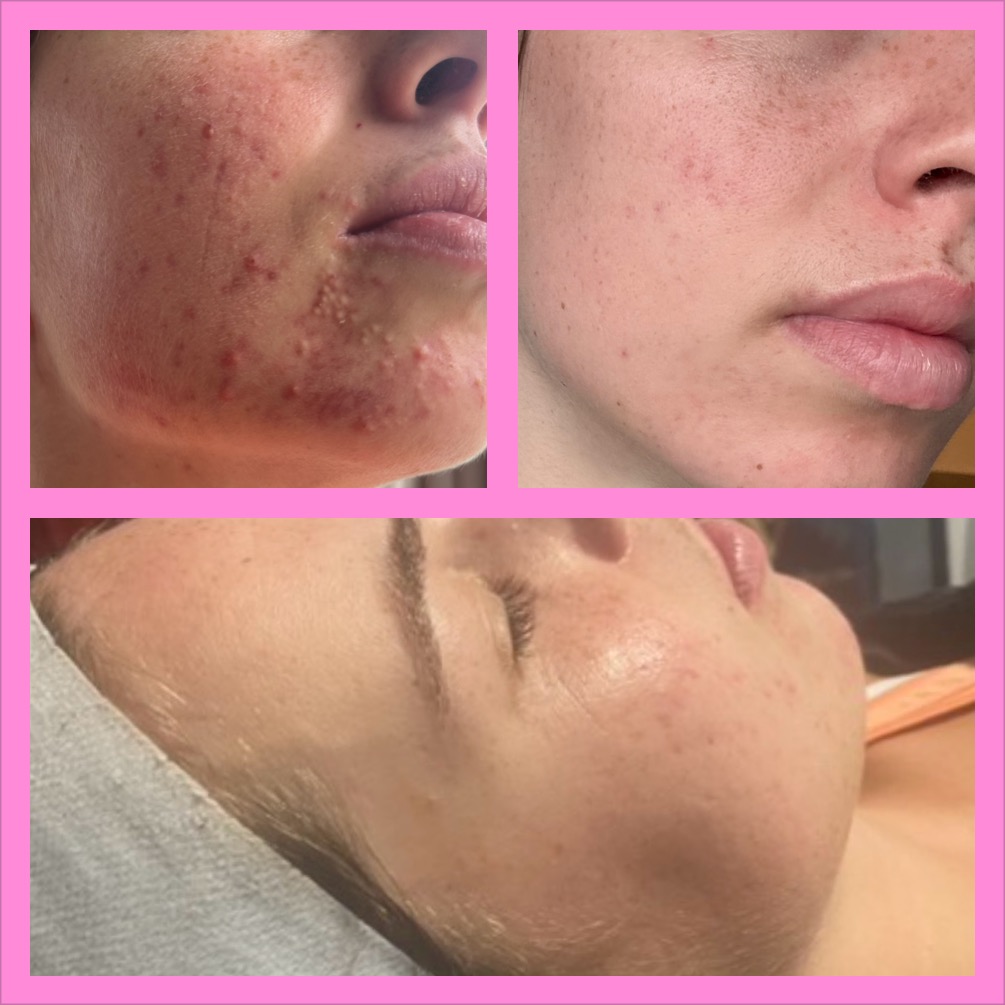Ignite your Glymphatic Glow
How deep Sleep and Skincare revitalise your skin
Instagram and influencers are all talking about the importance of lymphatic massage, and indeed – I offer this as part of many of my treatments as I too recognise the importance of the lymphatic system to remove waste, toxins, and excess fluids from the body’s tissues.
But when it comes to our body’s waste management, there are two that systems play crucial roles: the lymphatic system and another you may not be quite so familiar with – the glymphatic system.
The Lymphatic System is part of the immune system and is reasonably well understood.
It runs throughout the body, parallel to the blood circulatory system, and is involved in immune responses.
The Glymphatic System however primarily functions in the brain. It helps clear waste products that accumulate during brain activity, especially during sleep.
It involves a network of glial cells (supporting cells in the brain) and cerebrospinal fluid that flows through the brain’s spaces, it is unique to the central nervous system (the brain and spinal cord) and is most active during sleep.
There are key differences: The lymphatic system focuses on immune defence and fluid balance, and the glymphatic system is specialised for clearing waste from the brain.
The glymphatic system is most active during sleep or deep relaxation, highlighting the importance of rest for brain health. The lymphatic system works continuously throughout the day.
While both systems are vital for maintaining health, they operate in different areas and serve distinct functions. Understanding the synergy of these differences can help us appreciate how our bodies manage waste and stay healthy!
The Importance of Deep Sleep and Relaxation: Unlocking the Power of Rest and Repair
In our fast-paced world, the value of a good night’s sleep is often underestimated. However, deep sleep, a critical phase of our sleep cycle, plays a vital role in our overall health — particularly in skin wellness and bodily repair. Understanding the significance of deep sleep can empower you to prioritise it in your daily routine, leading to improved health, enhanced beauty, and a more resilient mind.
What is Deep Sleep?
Deep sleep, also known as slow-wave sleep, is the third stage of the Non-Rapid Eye Movement (NREM) sleep cycle. During this phase, your body enters a state of profound relaxation, and brain activity slows significantly. This is when magic happens: your body focuses on recovery and restoration, making it essential for both physical and mental health.
The sleep cycle consists of various stages, each serving unique functions. After falling asleep, the body undergoes a series of cycles, typically lasting about 90 minutes, which include light sleep, deep sleep, and REM (Rapid Eye Movement) sleep. Deep sleep usually occurs in the first half of the night, as your body prioritises it for recovery.
Why Deep Sleep Matters
Deep sleep is vital for several reasons:
Physical Recovery: This is when the body repairs tissues, builds bone and muscle, and strengthens the immune system. It’s essential for athletes and anyone looking to recover from physical exertion, or anyone under stress or noticing disruptions in health and wellness.
Cognitive Function: Deep sleep is crucial for memory consolidation and learning. It helps process and store information from the day, making it easier to recall later.
Emotional Health: Lack of deep sleep can lead to mood disturbances, increased stress, and anxiety. A well-rested mind is better equipped to handle daily challenges and emotional fluctuations.
Skin Health: Deep sleep plays a significant role in skin repair and rejuvenation, making it essential for maintaining a healthy complexion.
The Glymphatic System: Your Brain’s Cleaning Crew
One of the most fascinating aspects of deep sleep is its relationship with the glymphatic system. This recently discovered system acts as the brain’s waste clearance pathway, flushing out toxins and metabolic waste accumulated during active times.
How the Glymphatic System Works
During deep sleep, the glymphatic system becomes highly active. It facilitates the flow of cerebrospinal fluid (CSF) through the brain, effectively “cleaning” it. This process is crucial for brain health, as it helps reduce the risk of neurodegenerative diseases and disorders.
Research indicates that during deep sleep, the spaces between brain cells expand, allowing CSF to wash through more efficiently. This detoxification process not only clears harmful proteins and toxins but also enhances overall cognitive function.
Impact on Emotional Well-Being
A clean brain means better emotional regulation. When the glymphatic system functions optimally, it helps maintain a balanced mood and reduces the risk of anxiety and depression. Stress is a major contributor to skin issues, so maintaining emotional health through quality sleep can have a direct impact on your skin’s appearance.
Rest and Repair: The Skin Connection
Deep sleep is not just about brain health; it also plays a pivotal role in skin repair. During this stage, the body releases growth hormones that aid in cellular regeneration and tissue repair. This is particularly important for skin, as it undergoes a nightly renewal process.
The Skin’s Nightly Renewal Process
When you sleep, your skin enters a restorative phase.
Cellular Repair: Deep sleep enhances the body’s ability to repair skin cells damaged by UV exposure, pollution, and other environmental stressors. This is crucial for maintaining healthy skin.
Collagen Production: Growth hormones released during deep sleep stimulate collagen production. Collagen is vital for skin elasticity, helping to prevent sagging and the formation of wrinkles.
Enhanced Blood Flow: Proper sleep promotes better circulation, delivering essential nutrients and oxygen to the skin. This can lead to a more radiant and healthy complexion.
Regulation of Hormones: Sleep helps regulate hormones that influence oil production and hydration in the skin. Adequate deep sleep can help prevent acne and other skin issues linked to hormonal imbalances.
Stress Reduction: Quality sleep reduces stress levels, which can exacerbate skin conditions such as eczema, psoriasis, and acne. A calmer mind translates to a healthier skin barrier.
Aging and Sleep
As we age, our sleep patterns change, often resulting in less deep sleep. This reduction can accelerate visible signs of aging, including wrinkles, dull skin, and a lack of vibrancy. Prioritising deep sleep becomes even more crucial in maintaining youthful skin and overall health as we get older.
How Much Deep Sleep Do You Need?
The amount of deep sleep you need can vary based on age, lifestyle, and individual health factors. Generally, adults should aim for 7-9 hours of total sleep per night, with about 1.5-2 hours in deep sleep. Always consider the QQRT formula:
Quantity:
Refers to the amount of sleep you get each night. The abovementioned 7-9 hours of sleep. Adequate sleep is essential for physical and mental restoration.
Quality:
Encompasses the depth and restorative nature of sleep. Deep sleep and REM sleep cycles are crucial for cognitive and physical health. Factors like a dark, quiet, and cool bedroom, and avoiding screens before bed, can improve sleep quality.
Regularity:
Maintaining a consistent sleep schedule, even on weekends, is vital for regulating your body’s natural sleep-wake cycle (circadian rhythm).
Timing:
Aligning your sleep schedule with your natural circadian rhythm, which is your body’s internal clock, can enhance the restorative benefits of sleep.
If you’re struggling to achieve adequate deep sleep, consider adopting the following habits:
Establish a Consistent Sleep Schedule: Go to bed and wake up at the same time every day, even on weekends. Consistency helps regulate your internal clock, making it easier to enter deep sleep.
Create a Sleep-Inducing Environment: Make your bedroom dark, quiet, and cool. Use blackout curtains to block out light and consider white noise machines to mask disruptive sounds.
Limit Screen Time Before Bed: Reduce exposure to blue light from devices at least an hour before sleeping. Blue light can interfere with melatonin release, making it harder to fall asleep.
Practice Relaxation Techniques: Engage in calming activities before bed, such as reading, meditating, or taking a warm bath. This helps signal to your body that it’s time to wind down.
Mind Your Diet: Avoid caffeine and large meals close to bedtime. Caffeine can disrupt sleep patterns, while heavy meals can cause discomfort and disturb deep sleep as your body focuses on digestion.
Exercise Regularly: Engaging in regular physical activity can help improve sleep quality. However, try to avoid vigorous exercise close to bedtime, as it may energise you and make it harder to sleep.
Consider Supplements: If you have persistent sleep issues, a natural sleep aid such as box breathing, listening to binaural beats or solfeggio frequencies may help or you may consider a supplement, such as the correct form of Magnesium to help promote better sleep.
Deep sleep is an essential component of health that goes beyond simply recharging your body. It nourishes your brain, enhances emotional well-being, and plays a critical role in skin repair and rejuvenation. By prioritizing deep sleep, you can unlock a multitude of health benefits, from improved cognitive function to a radiant complexion.
Incorporating healthy sleep habits into your routine can make a significant difference in your overall wellness. Embrace the power of restorative sleep, and watch as it transforms not only your health but also your skin, leaving you feeling revitalised and ready to face the day. Remember, quality sleep is a vital investment in your beauty and health — so make it a priority!



